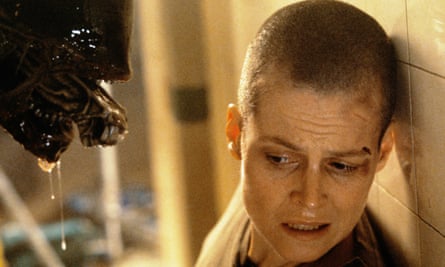The mouse just ate the fox – and created a monster. Or rather, an even bigger monster than the two separate ones already in existence. The Walt Disney Company’s $71.3bn takeover of most of 20th Century Fox is a gigantic deal, the business equivalent of a sex scene between Alien and Predator – and Fox’s Alien and Predator products are included in the purchase, along with James Cameron’s Avatar franchise and many other lucrative properties. It is estimated that the merger gives Disney control of 40% of all theatrical box office and puts it in a position to take on the digital streaming services such as Netflix, Amazon and Apple. (Incidentally, the deal includes a commitment to offer to buy 100% of Britain’s Sky TV.)
The deal also adds the superheroes X-Men, Deadpool and the Fantastic Four to the Disney fold – where they could conceivably slot into the Marvel Cinematic Universe; Disney also gets series like Planet of the Apes and will also acquire the original 1977 Star Wars, Episode Four: A New Hope. In addition to that it gets Fox’s regional sports networks, dozens of big TV properties like The Simpsons, Family Guy and Modern Family and the enormous Star India channel.
It’s an almost cartoon-like demonstration of alpha-capitalism: diversity and differentness mushed together into a great big monopolistic blob. With each acquisition, the stakes get higher, as do the profit-opportunities – and, I predict, the numbers of ass-covering executives who will feel less and less inclined to take risky chances on new and different types of film from new and different types of film-maker.

There’s a horrible historical echo. The great film entrepreneur William Fox, the Hungarian-Jewish furrier who anglicised his name from Fuchs, created the Fox Film Corporation in 1915, and then in 1929 tried to merge his empire with MGM by buying up the shares of the late Marcus Loew, the former chief of Metro-Goldwyn-Mayer. It resulted in a brutal counterattack by MGM moguls Louis B Mayer and Irving Thalberg, who induced the US justice department to sue Fox under federal antitrust law (the purpose of which is to prevent monopolies). Fox lost all his money in the 1929 crash and he lost control of the Fox Film Corporation. In 1936, he served six months in prison for attempting to bribe the judge at his bankruptcy hearing. While William Fox was doing his jail time, Walt Disney was beginning work on Snow White and the Seven Dwarfs, that staggeringly innovative film that became a cornerstone of future Disney dominance.
Back in the present day, Disney’s super-rich CEO Bob Iger, having stepped down as a member of Trump’s “advisory council” in 2017 but reportedly a longtime Democrat, is due to retire soon. He recently intervened when Jemele Hill, a sports presenter on the Disney-owned ESPN channel, called Trump a “white supremacist”, contravening that channel’s social media policies on expressing an opinion. On that occasion, it took a direct intervention from Iger to stop Hill getting into trouble. But who can doubt the Disney/Fox rules are likely to get stricter and safer and blander from now on?

